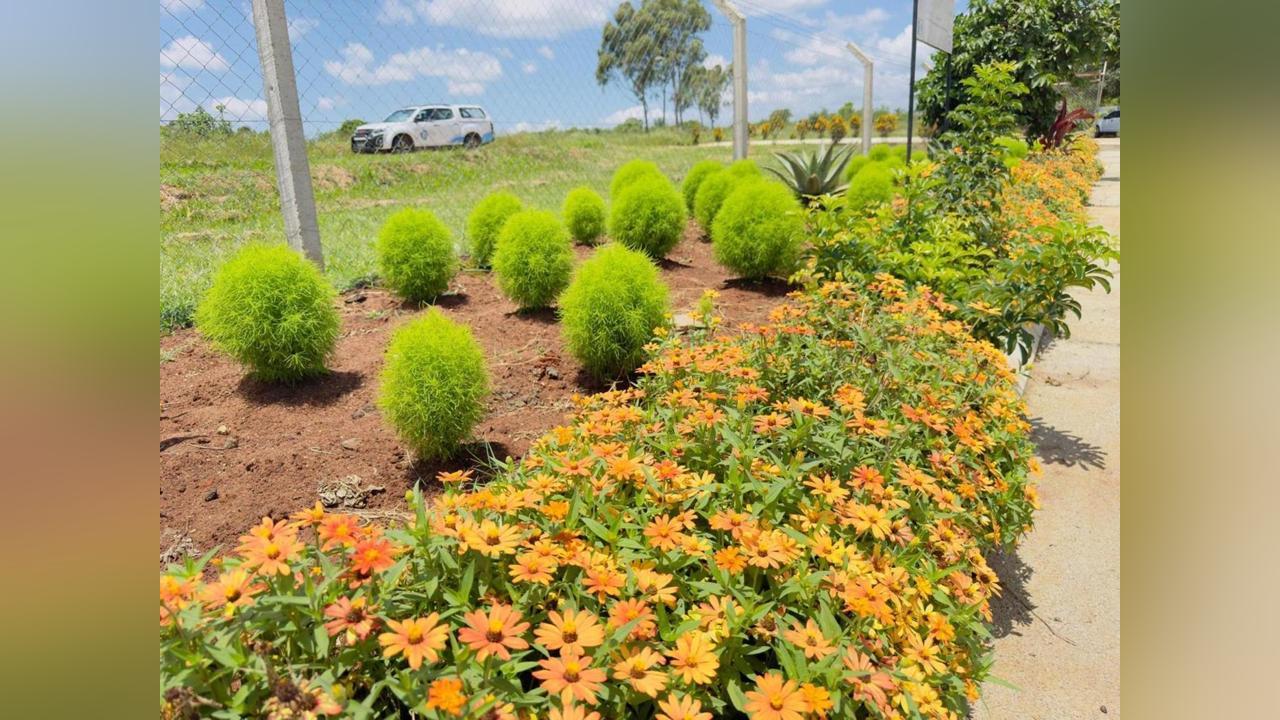Africa-Press – Eswatini. The hammering and drilling noise of a construction site is now hovering over the popular wetland of Matsapha.
Eswatini, through the Matsapha Municipality, has officially commenced construction of its first-ever Silent Park, a pioneering green space designed to promote tranquillity, biodiversity, and mindful recreation.
Set to launch in June, the park marks a significant milestone in the country’s environmental and wellness initiatives, offering citizens a sanctuary from urban noise and a deeper connection with nature.
According to the Matsapha Wetland Project Progress Report, construction commenced in April 2025 and is expected to be completed by July 2025. However, the site launch and handover to the Southern African Development Community (SADC), a development partner in the project, will take place on June 5, 2025, coinciding with World Environment Day.
According to Quiet Parks International (QPI), a silent park, frequently referred to as a Quiet Park, is a natural area designated for its exceptional lack of human-made noise, allowing visitors to experience the natural soundscape without significant auditory disturbances.
These parks are certified by Quiet Parks International (QPI), a non-profit organisation dedicated to preserving natural quiet for the benefit of all life.
The most common types of quiet parks are Wilderness Quiet Park, Urban Quiet Park and Quiet Conservation Areas.
The construction site is along the Matsapha Airport Road and the progress report revealed that in phase one of the project, there will be site fencing, environmental impact assessment (EIA), development of detailed architectural design,
nursery upgrade, species studies, fish ponds development, outdoor gym, walking trails, sanitary facilities, irrigation system, removal of alien invasive species and playgrounds landscaping.
Worth noting is that the industrial town’s authority has partnered with the Coca-Cola Company for the project.
The progress report further revealed the benefits of Silent Park, listing water protection stewardship, youth inclusion in the environment and sustainable development issues, women’s livelihoods, biodiversity enrichment, climate change adaption, carbon Sinks, keeping the community active and healthy, time to connect with nature, and alien species removal as the core benefits of the project.
Giving background on the project, Matsapha Municipality Environmental Health and Community Services Manager Mancoba Zwane said the initiative sought to protect the biggest wetland (15ha) by fencing off the current wetland and installing community beneficiating inputs that would create an undisturbed active open space.
Services Manager Mancoba Zwane
“Mainly, this project is concerned with the adoption, and implementation of means to become resilient in the era of climate change, water resource protection and wetlands protection.
The project is called ‘The Silent Park’ because it is a sanctuary that allows no loud noise and only pedestrians, and non-engine vehicles are permitted in the space. Activities in the park will include a one km running track, bird-watching spot, outdoor gym, fish ponds, permeable concrete, bicycling riding, reading and quiet walk platforms,” explained Zwane.
Zwane further highlighted that the project has climate change management and biodiversity benefits, stating that the Matsapha Municipality represented the local authority governing the main industrial town of the Kingdom of Eswatini which stood out as a distinct definition among other towns.
“One main river, the Lusushwana River, runs into and past the urban space within five catchments streams supply the river including this project area.
Some of the observed impacts in Matsapha include the invasion of wetlands by alien species, and encroachment of riverine ecosystems resulting in the reduction of water flows or recharge capacity which leads to flooding.
Industrial facilities and related critical infrastructure are vulnerable to the impact of natural hazards. The making of the silent park will also involve the planting of indigenous trees which are native to the wetland.”
He further stated that the project would serve as a water protection stewardship, biodiversity enrichment, climate change adaption strategy, and an amplified carbon sink because it is a wetland.
“The silent park will also be great for an outdoor life- keeping the community active and healthy. It will also provide a change of scenery while allowing time to connect with nature,” Zwane said.
For More News And Analysis About Eswatini Follow Africa-Press







